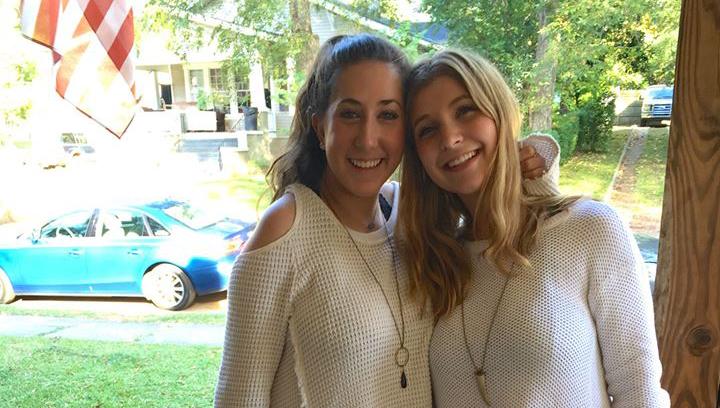One morning last September, Bianca Levy expected to be preparing for the drive to her Atlanta home to observe Yom Kippur, a central Jewish religious holiday that revolves around personal repentance and remembrance of the deceased. Instead, she sat in an unfamiliar basement, 200 miles away from her family because her chemistry teacher would not excuse the absence.
“Even though it’s Atlanta, you still feel like you’re millions of miles away,” Levy said. “To have a holiday like that, a moment like that where all I wanted to do was be with my mom – and I ended up having to be alone with a rabbi in a basement. It just wasn’t right.”
Levy, a sophomore majoring in communicative disorders, was forced to remain in Tuscaloosa on one of the most important Jewish holidays of the year thanks to a chemistry department rule forbidding absences for religious holidays.
After explaining Yom Kippur and its meaning to teachers in the chemistry department, Levy still wasn’t excused from her class.
“My dad passed away a couple years ago, and I explained that in my email that I wanted to go to Yizkor,” Levy said. “It’s a bunch of prayers you can only say that day, a very spiritual day. I explained that all, gave the whole background of it, and I got the same response.”
The email she received back from the department was less than what she hoped for.
“It was from the department head, and it was ‘We don’t excuse for religious holidays,’ ” Levy said. “I wanted to respond and say, ‘So if my lab was on Christmas?’ ”
According the chemistry department’s website, they do not have a specific policy on missing classes for religious holidays, and they encourage students to meet the requirements for classes regardless of absence.
While Levy had issues with finding acceptance in academic departments at the University, she has positive experiences of understanding and inclusivity as well.
“I’m in a pretty notoriously religious sorority, a lot of Christian girls,” Levy said. “They asked me to do devotionals in chapter and explain some of the stuff about my religion and holidays, really making sure I felt comfortable. And there are only like four of us in the sorority who are Jewish, so really making that effort and going out of their way to make sure I felt comfortable is a huge deal. If your sorority can do that, the school should be able to.”
Levy is just one student in the small but strong Jewish community at the University, but her story is reflective of a larger separation from the student body that Jewish students sometimes experience.
Rabbi Steven Jacobs also describes the Jewish community in Tuscaloosa as in touch with the University, and relying a lot on each other.
“It’s a very small community that’s connected to the University, a lot of faculty, some administration – it’s a small and close community.” Jacobs said.
Beth Galaid, a sophomore majoring in management information systems, is Levy’s roommate and comes from a traditional Orthodox Jewish family. Galaid also said that the sense of community helps to define her faith.
“The way that we practice isn’t so much religion-based,” Galaid said. “It’s more familial and spiritual and community. This is what Judaism is – organized chaos with people you love.”
Galaid’s mother was Irish-Catholic when she married Galaid’s father, prompting her to convert to Judaism to comply with Jewish law: a mother must be Jewish for her child to be Jewish.
“Because of that, you have people that say, ‘She didn’t do Judaism in the right way,’ ” Galaid said. “In the eyes of some Jews, I’m not really Jewish, and that hurts me, but it doesn’t stop me from being Jewish. It doesn’t stop me from being happy, and it doesn’t stop me from smiling in the face of people who don’t believe in my Judaism. I am a Jewish woman, and I will continue.”
This is not the only misconception that Galaid has come into contact with. She said she has also experienced a lot of misconceptions about women in Judaism, but in fact women are empowered in her religion.
“Feminism was cool in Judaism before it was cool anywhere else,” Galaid said.
Rabbi Stevens has also seen stereotypes and misconceptions about his faith.
“People simply do not know a great deal about Jewish history and Jewish practices,” Jacobs said. “It fosters ideas that are inaccurate. People don’t know about the origin of our holidays or their significance. For example, people have knowledge about Hanukkah, but it isn’t a Jewish Christmas. It’s coincidence that they occur at the same time. It stems from a lack of knowledge.”
Levy envisions her personal purpose as continuing to be a voice in her community.
“I don’t know if I have one purpose, but I want to be an advocate in the Jewish community,” Levy said. “I don’t want to be ashamed for who I am, and to own who I am as a Jewish person, and a person.”
Galaid said she feels that her personal purpose at least in part aligns with her religion, especially in terms of acceptance and making a difference.
“I feel like my purpose in my religion is to help others, to extend a hand,” Galaid said. “That’s what Judaism is, really – tiny acts of kindness all day long, 24/7, 365. Be kind, don’t judge. Be able to accept others and their differences. Do good, and leave a mark on this world. I hope that when it’s my time to go, I have fully lived every day to the fullest.”









